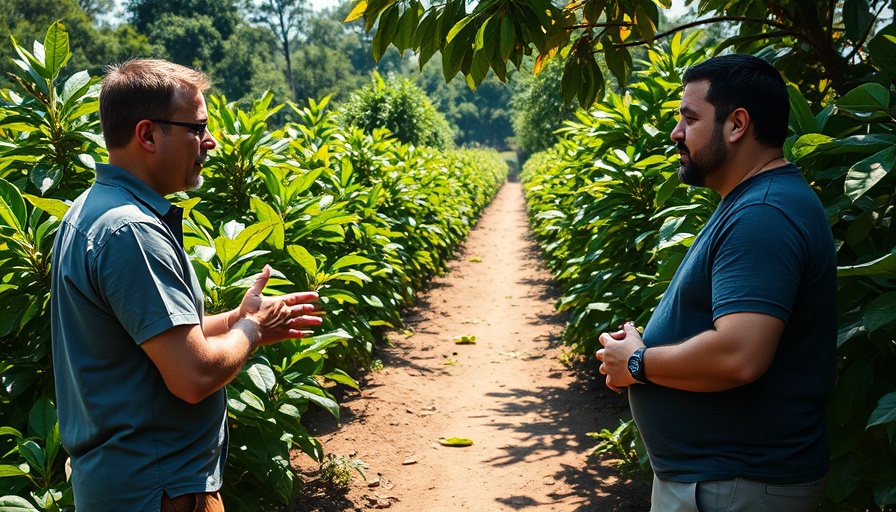
Brewing a New Kind of Coffee Culture
In a world where consumer choices carry immense weight, Martin Mayorga stands out as a beacon of hope and change. As the founder of Mayorga Organics, he has taken his passion for coffee and transformed it into a platform for empowering farmers throughout Latin America. In a recent episode of the Culture Matters podcast, he delves deep into the intricate connections among coffee, culture, and ethical business practices.
The Heart Behind Mayorga Organics
Mayorga’s journey begins with his cultural roots. Representing a proud Latino heritage, he doesn’t just see coffee as a product but as a narrative that encapsulates stories and lives. His vision is clear: when you purchase coffee from Mayorga Organics, you are not just getting a flavorful brew; you are supporting a sustainable ecosystem that respects farmers and the environment. This mission-driven approach speaks to a broader expectation from consumers today—being mindful of where and how their products come to life.
Cultural Competence in Business
An integral part of Mayorga’s philosophy is the emphasis on cultural competence in international business. He advocates for understanding the historical context of the regions you are engaging with. Educating oneself about the country’s past, participating in honest conversations, and appreciating cultural differences can lead to not only better business but enriched personal experiences. "The perception of quality varies among cultures," he notes. With this understanding, businesses can thrive by customizing their approaches to meet diverse expectations.
Learning From Challenges
Mayorga doesn’t shy away from addressing the challenges that accompany international trade. From navigating complex regulations to understanding local consumer behavior, every hurdle can serve as an opportunity for learning. His commitment to ethical entrepreneurship exemplifies how businesses can grow while remaining true to their mission of social responsibility. "The most common mistake is underestimating the cultural aspects of doing business internationally—this can lead to pitfalls that are easily avoidable with proper insight and preparation," he shares.
Developing Awareness Through Action
No matter where they live or work, professionals and entrepreneurs can derive significant value from Mayorga's insights. For digital nomads and expatriates especially, these tips on becoming culturally aware are vital in forging meaningful connections. As globalization continues to shape the business landscape, understanding cultural nuances becomes crucial in adapting and establishing fruitful relationships.
Brewing Ethical Experiences
What does it mean to participate in a world enriched by ethical consumption? As Mayorga leads the conversation, he highlights that supporting businesses like his doesn’t just benefit farmers; it enhances the coffee experience for consumers. The flavor notes in a cup of Mayorga coffee translate to story—one of struggle, resilience, and community upliftment. This narrative empowers consumers to brew a more ethical and culturally rich experience every time they fill their mug.
Take Action: Engage With Culture
Now, how can you incorporate these insights into your life? Start by engaging with local coffee vendors who source their beans ethically. Observe and participate in conversations that celebrate cultural diversity. If you're planning to travel, invest time in learning about your destination's history. By actively seeking out these experiences, you not only enhance your understanding but also contribute to a more culturally aware world.
In an interconnected and rapidly changing world, embracing cultural understanding isn't just that—it’s a pathway for personal and professional growth. Martin Mayorga’s journey is a testament to what happens when we prioritize people behind the products and see businesses as a force for good. It’s a reminder to us all: every cup of coffee shared carries the potential for transformative conversations and relationships.
 Add Row
Add Row  Add
Add 




Write A Comment